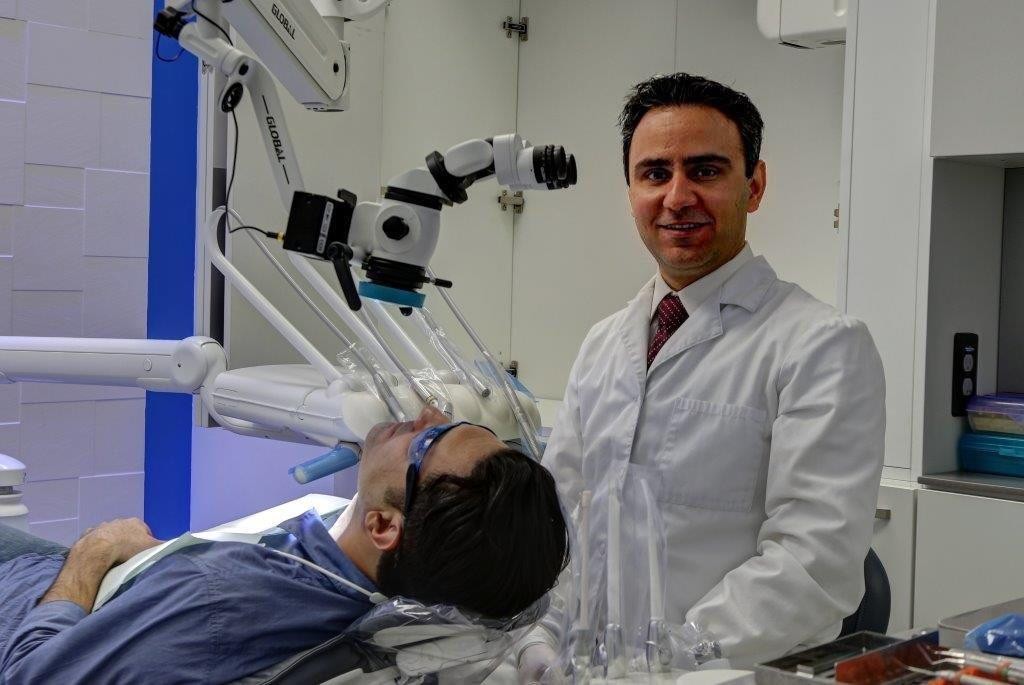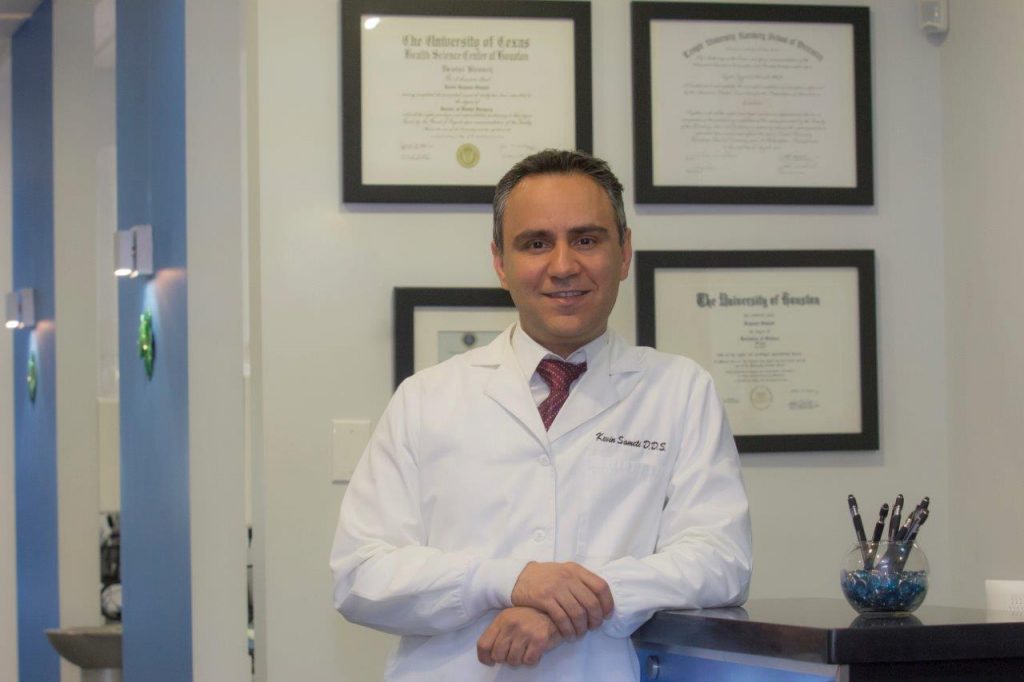Advanced and Proven Techniques of Endodontics in Houston
South Houston Endodontics and Root Canal Specialist offers highly specialized services that utilize today’s modern state-of-the-art equipment and cutting edge technology to produce remarkable results for patients. With years of experience as well as a dedication and commitment to providing high quality Endodontic services, South Houston Endodontics specializes in root canal therapy, root canal surgical procedures, root canal retreatment and strategies for handling a wide range of dental injuries. These injuries can include various types of dental traumas such as cracked teeth.
Most importantly, patients of South Houston Endodontics and Root Canal Specialist can expect a relaxed, friendly and inviting environment where the patient’s dental health and wellness are always a top priority.
Committed To Providing The Best Endodontics Care Available

ENDODONTICS TREATMENTS
WHAT WE ARE GOOD AT
Click on the links below to learn more about our advanced endodontic treatments that are designed to improve dental health and retain the patient’s natural teeth by South Houston Endodontics and Root Canal Specialist.
Root canal therapy is a type of dental procedure that has been around for some time. In fact, it is one of the most frequently performed dental procedures in the country. Nearly 15 million people each and every year have this type of procedure performed as a way to save their natural teeth. Most importantly, by having root canal therapy, an individual can avoid the expense and complexity of dental implants or bridges. Read more

Another way of describing root canal therapy is by using the term endodontic treatment. As described in the root canal therapy section, endodontic treatment involves, in most cases, entering the center of the tooth through the crown to access the pulp. Once diseased or injured pulp has been removed, a stable material is added along with thorough disinfection to ensure that infection does not occur. To learn more read the section titled root canal therapy. Read more
While the success rate for endodontic treatment is considered very high, there are certain instances and cases where pain may persist long after the initial treatment has been completed. This is when endodontic retreatment may be required. For example, if a cracked or loosened restoration exposes the tooth to a new infection, retreatment may be necessary. This type of procedure may also be required when new trauma exists, thus exposing the root canal filling material and thereby resulting in infection. Read more
There are number of symptoms that are indicative of a cracked tooth. For example, sensitivity to temperature and pressure as well as pain associated with chewing may all indicate that a tooth could indeed be cracked. Another common symptom of a cracked tooth is that of pain that is irregular or sporadic. When a tooth has become cracked, chewing can cause cracked pieces of the tooth to move and shift. When this happens pain is often experienced. Read more
Endodontic surgery or apicoectomy involves the specialist making an incision in the gum tissue to expose the bone as well as the surrounding tissue that may have become inflamed. During the surgery, damaged tissue is carefully removed along with any damaged or injured root. In most situations only the root tip must be removed. The next step involves replacing any part of the tooth root that has been removed with a suitable filling material. Full function is restored once the bone surrounding the root has had time to heal and regenerate. Read more
Traumatic tooth injuries can take many forms. For example, dislodged teeth caused by impact events can result in teeth being pushed back into their sockets in a painful and unnatural way. When this happens, it is necessary to stabilize and reposition the teeth in order to affect recovery and healing. Root canal therapy is typically required and started within just a few weeks to ensure a successful outcome. In other instances a tooth may be forced out of the socket requiring a similar type of procedure. Depending on the health of the pulp, root canal treatment may or may not be required. Read more
Another type of condition that is considered a traumatic tooth injury is when a child looses a permanent tooth and is known as apexogenesis. This procedure is design to help the root continue its development as the pulp heals. The apex, which is also known as the tip of the root continues to grow over time, as the child gets older. This is important because it allows the walls of the root canal to then thicken naturally. The more mature the root becomes the greater likelihood that the tooth will be saved. Read more
Sedation associated with endodontic treatment can take a number of forms. For example, some patients may have the option of receiving Nitrous Oxide (N2O) or laughing gas as it is sometimes called. This type of sedation causes extreme relaxation allowing the patient to become calm and euphoric. Local anesthesia is also used in conjunction with this type of sedation to provide for minimal discomfort or pain. While local anesthesia provides a barrier to pain, Nitrous Oxide (N2O) is instrumental in allowing the patient to have reduced levels of anxiety along with beneficial analgesic effects. Read more

Dr. KEVIN K. SAMETI
AND HIS TEAM OF BRIGHT PROFESSIONALS
Dr. Sameti earned a Bachelor of Science Degree in Biology from the University of Houston as well as a Dental Degree from the University of Texas Dental Branch located in Houston. The doctor also holds a Certificate in Endodontics from the prestigious Temple University.
He is a Clinical Associate Professor at the University of Texas, where he volunteers to teach soon-to-be dentists the art and science of endodontics. He is a “specialist” member of the American Association of Endodontists.
Please visit the University link here https://dentistry.uth.edu/
The Doctor also maintains membership in the American Dental Association, the Texas Dental Association, and the Greater Houston Dental Society. Dr. Sameti loves saving teeth and takes great pride in every aspect of perfection in dental care.

From our twitter
Recent news & events
UNDERSTANDING ENDODONTICS
THE SCIENCE AND PRACTICE
The science and practice of Endodontics is simply a branch of dentistry that diagnoses and treats the pulp of the tooth as well as the surrounding tissue such as gum tissue. More specifically, the pulp of the tooth is often referred to as the root canal and is considered to be the greater portion of the tooth that is not visible. This is the part of the tooth that occupies the space beneath the gum line.
It is important to note that the outer casing of the tooth root (called the dentin) is hard much like the crown of the tooth. However, the inside portion of the root is comprised of soft tissue as well as nerves and blood vessels. This is the part of the tooth that is often addressed through the advanced and specialized procedures and technology associated with Endodontics.
Patients should understand that there are a number of situations where bacteria can come into contact with the pulp or soft tissue of the tooth. From tooth trauma to tooth decay and periodontal disease as well as other types of tooth related trauma, there are many instances where the pulp of the tooth can be severely compromised or damaged. A root canal removes compromised or diseased pulp as a way to save the tooth and reduces the chance of any additional infection or inflammation.
Through the implementation of Endodontics patients can enjoy many years and even decades of continued healthy tooth performance. In many cases, this is clearly a better option than having a tooth extracted or replaced with a dental implant or bridge. It is also important to note that with today’s advanced sedation techniques, root canal patients should expect minimal to no pain and a very high procedure success rate.
APPOINTMENT
WE ARE READY TO ASSIST
Our experienced and dedicated team of dental professionals are ready to assist patients who require the expertise and knowledge of trained Endodontics professionals. In most instances, patients can schedule a dental treatment with South Houston Endodontics and Root Canal Specialist during regular business hours. Best of all, patients are then able to return to work or other life duties in and outpatient style.








